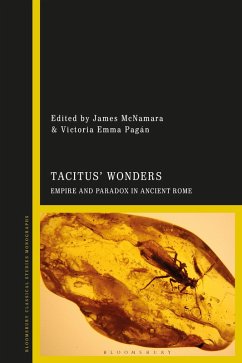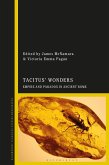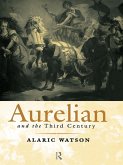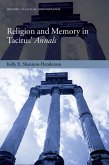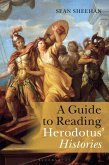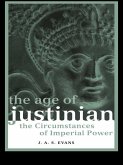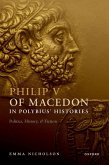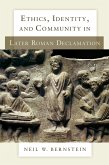This volume approaches the broad topic of wonder in the works of Tacitus, encompassing paradox, the marvellous and the admirable. Recent scholarship on these themes in Roman literature has tended to focus on poetic genres, with comparatively little attention paid to historiography: Tacitus, whose own judgments on what is worthy of note have often differed in interesting ways from the preoccupations of his readers, is a fascinating focal point for this complementary perspective.
Scholarship on Tacitus has to date remained largely marked by a divide between the search for veracity - as validated by modern historiographical standards - and literary approaches, and as a result wonders have either been ignored as unfit for an account of history or have been deprived of their force by being interpreted as valid only within the text. While the modern ideal of historiographical objectivity tends to result in striving for consistent heuristic and methodological frameworks, works as varied as Tacitus' Histories, Annals and opera minora can hardly be prefaced with a statement of methodology broad enough to escape misrepresenting their diversity. In our age of specialization a streamlined methodological framework is a virtue, but it should not be assumed that Tacitus had similar priorities, and indeed the Histories and Annals deserve to be approached with openness towards the variety of perspectives that a tradition as rich as Latin historiographical prose can include within its scope. This collection proposes ways to reconcile the divide between history and historiography by exploring contestable moments in the text that challenge readers to judge and interpret for themselves, with individual chapters drawing on a range of interpretive approaches that mirror the wealth of authorial and reader-specific responses in play.
Hinweis: Dieser Artikel kann nur an eine deutsche Lieferadresse ausgeliefert werden.
Scholarship on Tacitus has to date remained largely marked by a divide between the search for veracity - as validated by modern historiographical standards - and literary approaches, and as a result wonders have either been ignored as unfit for an account of history or have been deprived of their force by being interpreted as valid only within the text. While the modern ideal of historiographical objectivity tends to result in striving for consistent heuristic and methodological frameworks, works as varied as Tacitus' Histories, Annals and opera minora can hardly be prefaced with a statement of methodology broad enough to escape misrepresenting their diversity. In our age of specialization a streamlined methodological framework is a virtue, but it should not be assumed that Tacitus had similar priorities, and indeed the Histories and Annals deserve to be approached with openness towards the variety of perspectives that a tradition as rich as Latin historiographical prose can include within its scope. This collection proposes ways to reconcile the divide between history and historiography by exploring contestable moments in the text that challenge readers to judge and interpret for themselves, with individual chapters drawing on a range of interpretive approaches that mirror the wealth of authorial and reader-specific responses in play.
Hinweis: Dieser Artikel kann nur an eine deutsche Lieferadresse ausgeliefert werden.

